BGS to play its part in circular economy centres to drive UK to sustainable future
The British Geological Survey (BGS) will be at the heart of two pioneering new research centres designed to help drive the UK towards a circular economy and a more sustainable future.
13/11/2020 By BGS Press
BGS expertise will contribute to the development of two new UKRI-funded Interdisciplinary Circular Economy Centres:
- Interdisciplinary Circular Economy Centre in Technology Metals
- Interdisciplinary Circular Economy Centre for Mineral-based Construction Materials
They are part of five new centres announced on 11 November as part of a £22.5 million Government investment to explore how closing the loop for materials in the textiles, construction, chemical and metal industries can deliver huge environmental benefits and boost the UK economy.
The UK Research and Innovation (UKRI) interdisciplinary circular economy centres will help the UK move towards a circular economy, which will provide significant benefits by:
- reducing waste
- lowering the environmental impact of production and consumption in the UK and abroad
- securing supply for critical raw materials
- creating opportunities for new UK industries
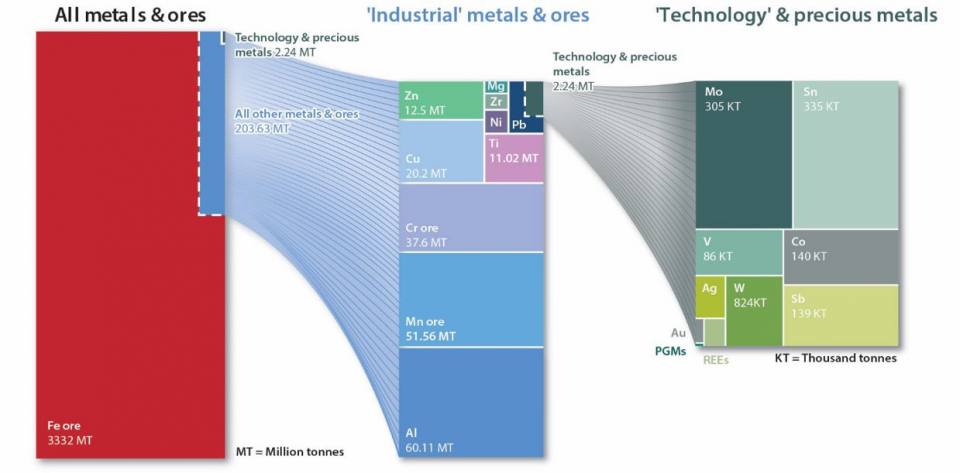
Global metal production 2017 data from BGS World Mineral Statistics Database.
The Interdisciplinary Circular Economy Centre in Technology Metals will be led by the University of Exeter and is designed to revolutionise how critical metals are extracted, used and reused in low-carbon and digital technologies across the UK.
As part of this centre, BGS will be responsible for the development of a Circular Economy National Virtual Data Observatory (NVO) to deliver stocks and flows data and information for a range of technology metals. It will form a key part of the centre’s work to explore ways to create a circular economy for the technology metals such as cobalt, rare earths and lithium, essential for low-carbon and digital technologies such as electric cars and wind turbines.
We are very excited to be given the opportunity to develop this National Virtual Data Observatory (NVO) in the UK, which will bridge the data gap about the whole cycle of technology metals.
The geoscience community has a wide range of tools, methods and skills that are transferable to the challenges of the circular economy.
Dr Evi Petavratzi, BGS Mineral Commodity Expert.
The centre aims to develop a new cycle, right from the first stages of extraction, to enable secure and environmentally-acceptable circulation of these materials within the UK economy.
It will bring together experts from the University of Exeter and the Camborne School of Mines, the Universities of Birmingham, Manchester, Leicester and BGS, as well as 40 partner companies and organisations.
The Interdisciplinary Circular Economy Centre for Mineral-based Construction Materials will be led by University College London and aims to develop systems for more efficient use and recovery of mineral resources in the UK’s construction sector.
Relative topics
Related news
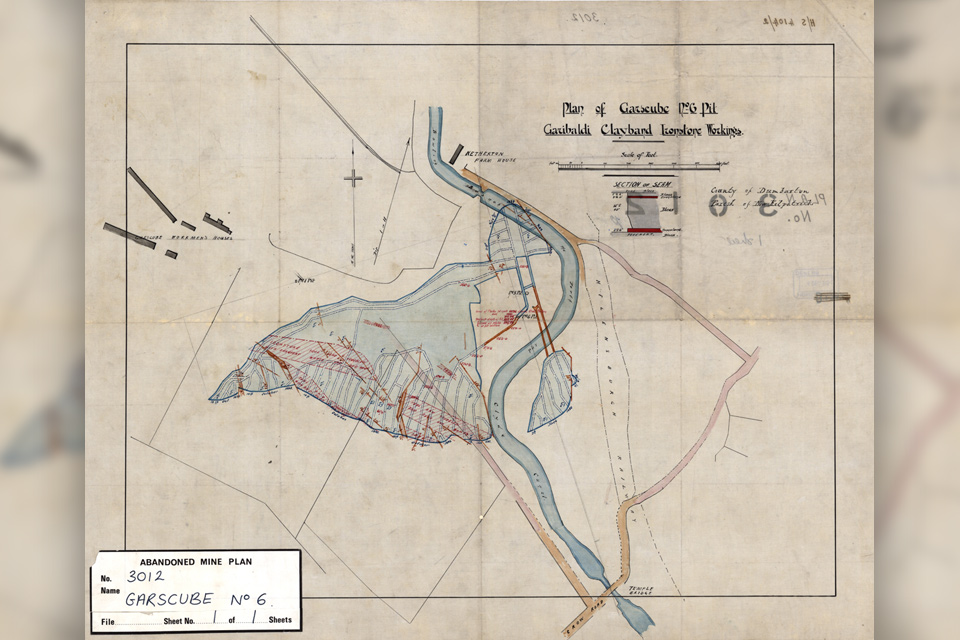
Release of over 500 Scottish abandoned-mine plans
24/06/2025
The historical plans cover non-coal mines that were abandoned pre-1980 and are available through BGS’s plans viewer.
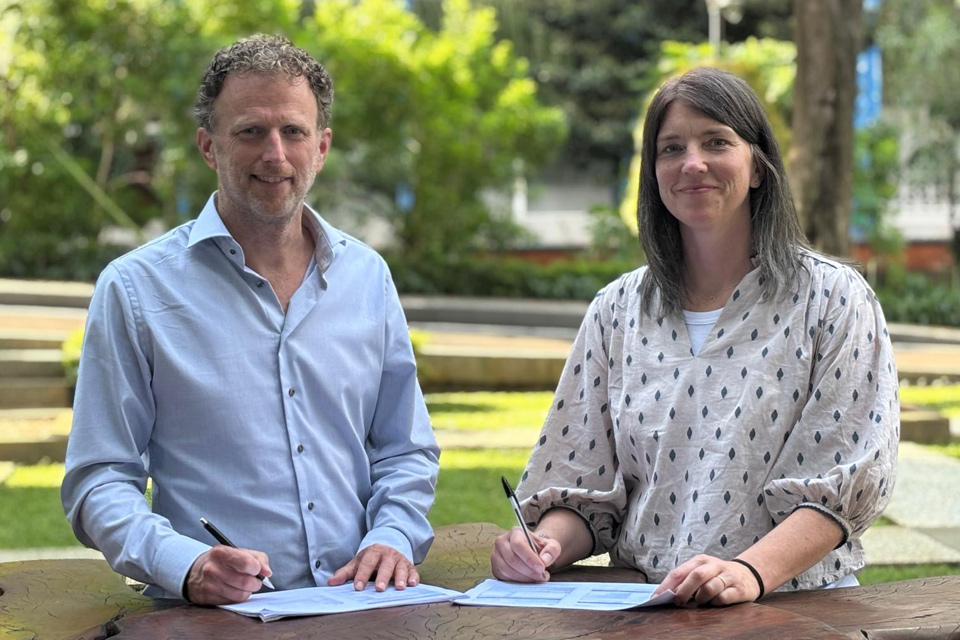
New collaboration aims to improve availability of real-time hazard impact data
19/06/2025
BGS has signed a memorandum of understanding with FloodTags to collaborate on the use of large language models to improve real-time monitoring of geological hazards and their impacts.
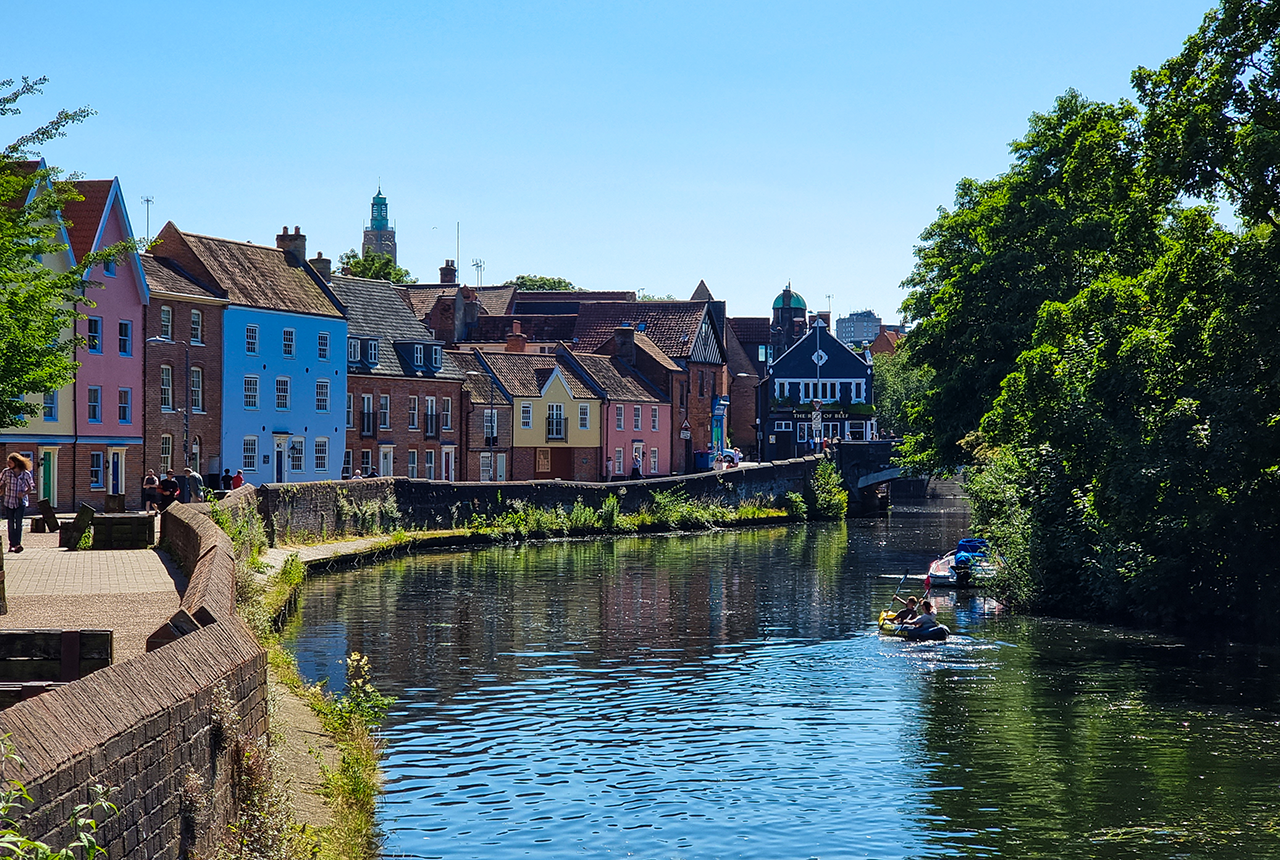
Modern pesticides found in UK rivers could pose risk to aquatic life
17/06/2025
New research shows that modern pesticides used in agriculture and veterinary medicines have been found for the first time in English rivers.

Goldilocks zones: ‘geological super regions’ set to drive annual £40 billion investment in jobs and economic growth
10/06/2025
Eight UK regions identified as ‘just right’ in terms of geological conditions to drive the country’s net zero energy ambitions.
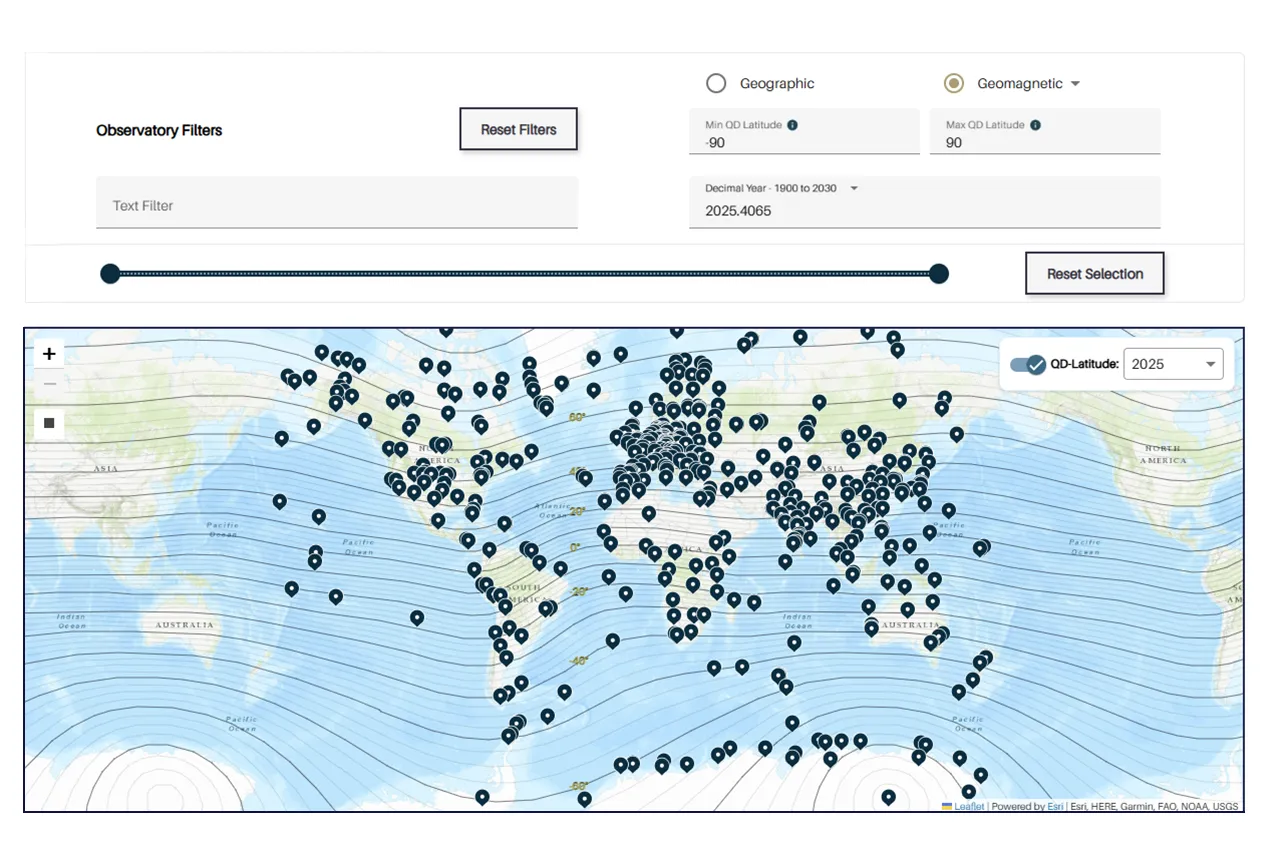
Upgraded web portal improves access to geomagnetism data
02/06/2025
BGS’s geomagnetism portal, which holds data for over 570 observatories across the world, has received a significant update.

BGS digital geology maps: we want your feedback
29/05/2025
BGS is asking for user feedback on its digital geological map datasets to improve data content and delivery.

What is the impact of drought on temperate soils?
22/05/2025
A new BGS review pulls together key information on the impact of drought on temperate soils and the further research needed to fully understand it.
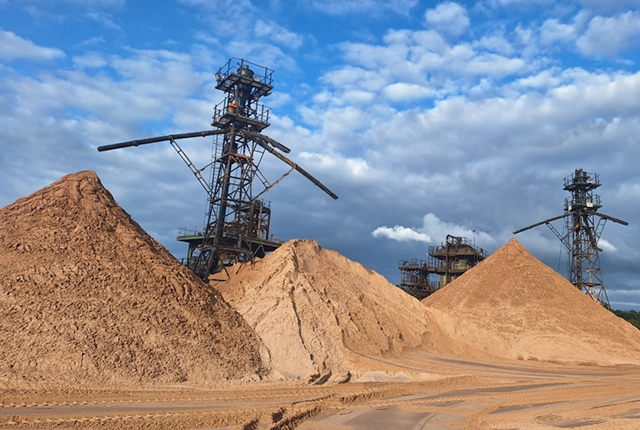
UK Minerals Yearbook 2024 released
21/05/2025
The annual publication provides essential information about the production, consumption and trade of UK minerals up to 2024.

BGS scientists join international expedition off the coast of New England
20/05/2025
Latest IODP research project investigates freshened water under the ocean floor.

New interactive map viewer reveals growing capacity and rare earth element content of UK wind farms
16/05/2025
BGS’s new tool highlights the development of wind energy installations over time, along with their magnet and rare earth content.
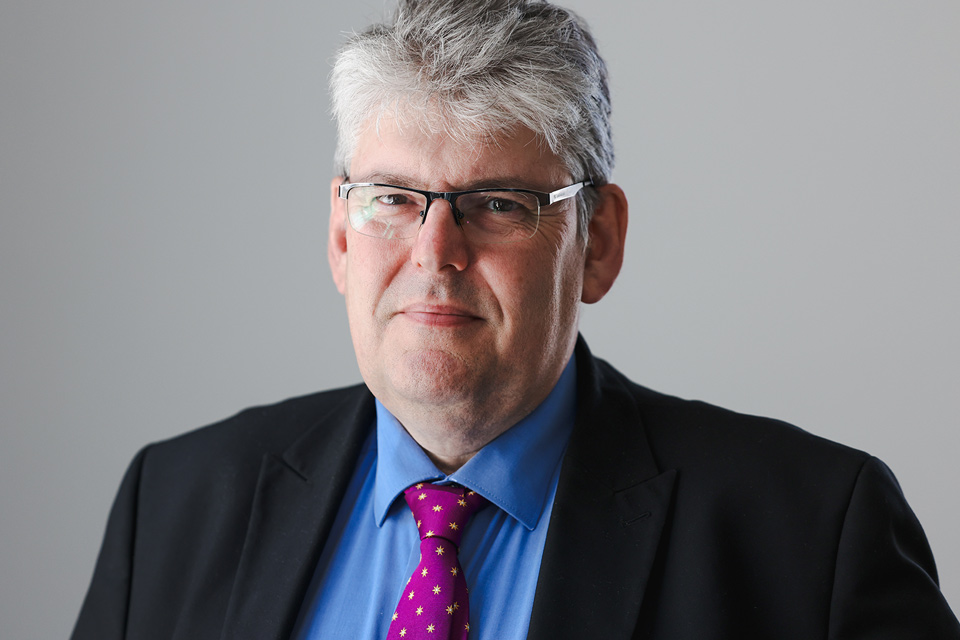
UKRI announce new Chair of the BGS Board
01/05/2025
Prof Paul Monks CB will step into the role later this year.
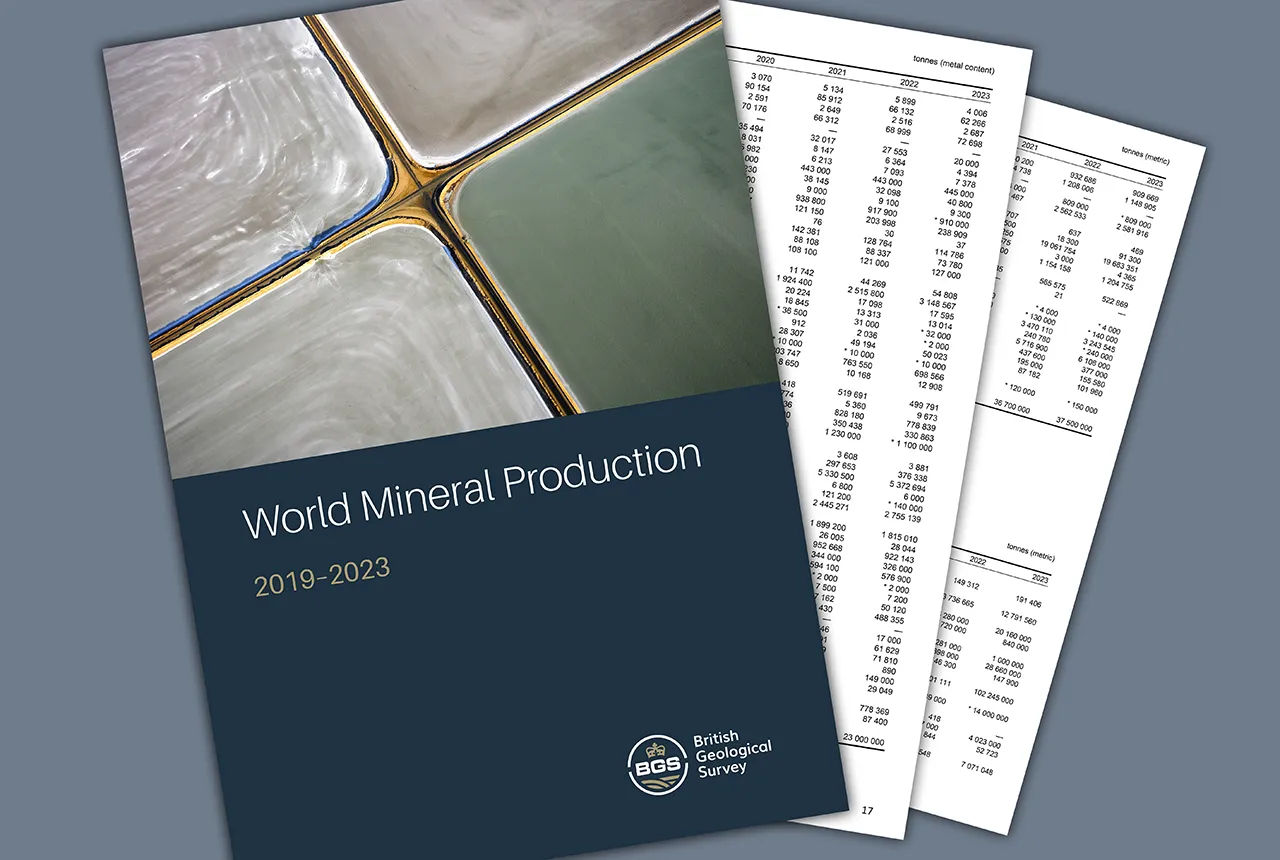
Latest mineral production statistics for 2019 to 2023 released
28/04/2025
More than 70 mineral commodities have been captured in the newly published volume of World Mineral Production.




